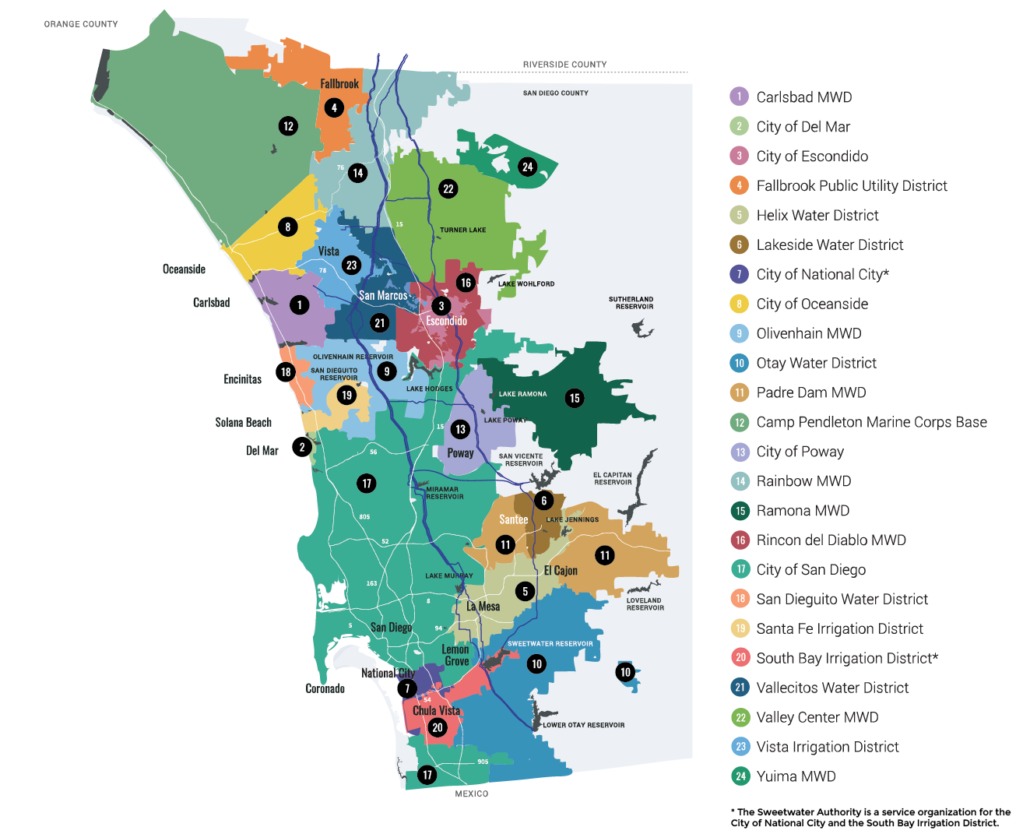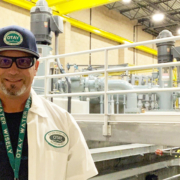Editor’s Note: This feature highlights water utility employees in the San Diego region working during the coronavirus pandemic to ensure a safe, reliable and plentiful water supply. The water industry is among the sectors that are classified as essential. Keith Swiatkowski, Otay Water District Water Systems Operator III, is the Water Utility Hero of the Week.
Water Utility Hero of the Week: Keith Swiatkowski
Job/Agency: Otay Water District Water Systems Operator III
How did you become interested in working in the water industry?
I was working in the Aerospace manufacturing industry at Solar Turbines for 12 years, but felt I wanted to work in a field that served my local community or region. My mother worked for the SDCWA and really enjoyed working in the water industry. She encouraged me to look for a career in this field. A friend of mine knew someone that worked for the City of Escondido, so I was able to contact him and learn what it would take to get into this field. I took a test at Escondido City Hall with about 400 other people, did well enough to get an interview, and eventually got hired by them. I spent 4.5 years learning everything I could working from the ground level, literally, working in excavations making repairs to water mains. I then took classes at Palomar College and State Certification tests to advance my career. I came a long way from my humble beginnings and truly enjoy serving the community as a Water Systems Operator III for the Otay Water District where I’ve worked now for 7.5 years.
How has your job changed during the pandemic?
My job function hasn’t changed much. What has changed is how we’re getting it done. We are currently operating with minimal staff reporting for duty in the field so that we limit potential exposure. We are still able to accomplish all of our tasks by spreading more of the field work around and adjusting schedules. This ensures that we continue to provide our customers with same level of service so they don’t notice any difference. The other staff work from home and we do this on a rotating basis. Those working from home have the opportunity to monitor our distribution system via SCADA, stay in touch via e-mail or text, study our mapping program to learn more about pipe sizes/material, pressure zones, and review district policies.
How are you keeping safe?
The District has done a great job providing the latest online training regarding how to stay safe. We have implemented temperature check kiosks at the district to ensure employees are safe to work. Personally I’m wearing my mask in the office, when in public or speaking with customers in person, washing my hands more or using hand sanitizer, wiping down surfaces more often, social distancing in the office or in public, and limiting going to stores during my time at home. Fortunately most of my work day is driving alone in my truck to different sites to test for water quality, so that limits my exposure as well.
What are you most looking forward to after the crisis ends?
I’m looking forward to being able to have in-person meetings. We do get the same things accomplished through video meetings or being far enough apart in the crew room. But there’s nothing like being able to have a crew all come together as a team or have an all-hands meeting and feel that sense of community. I’m also looking forward to my ultra-running trail races being held again soon, working out in the gym, going to concerts, having people over for BBQ’s, going to the movies, and taking my wife out for a romantic dinner on the coast.
The Water Utility Hero of the Week highlights essential work performed during the COVID-19 pandemic by employees of the San Diego County Water Authority’s 24 member agencies.





